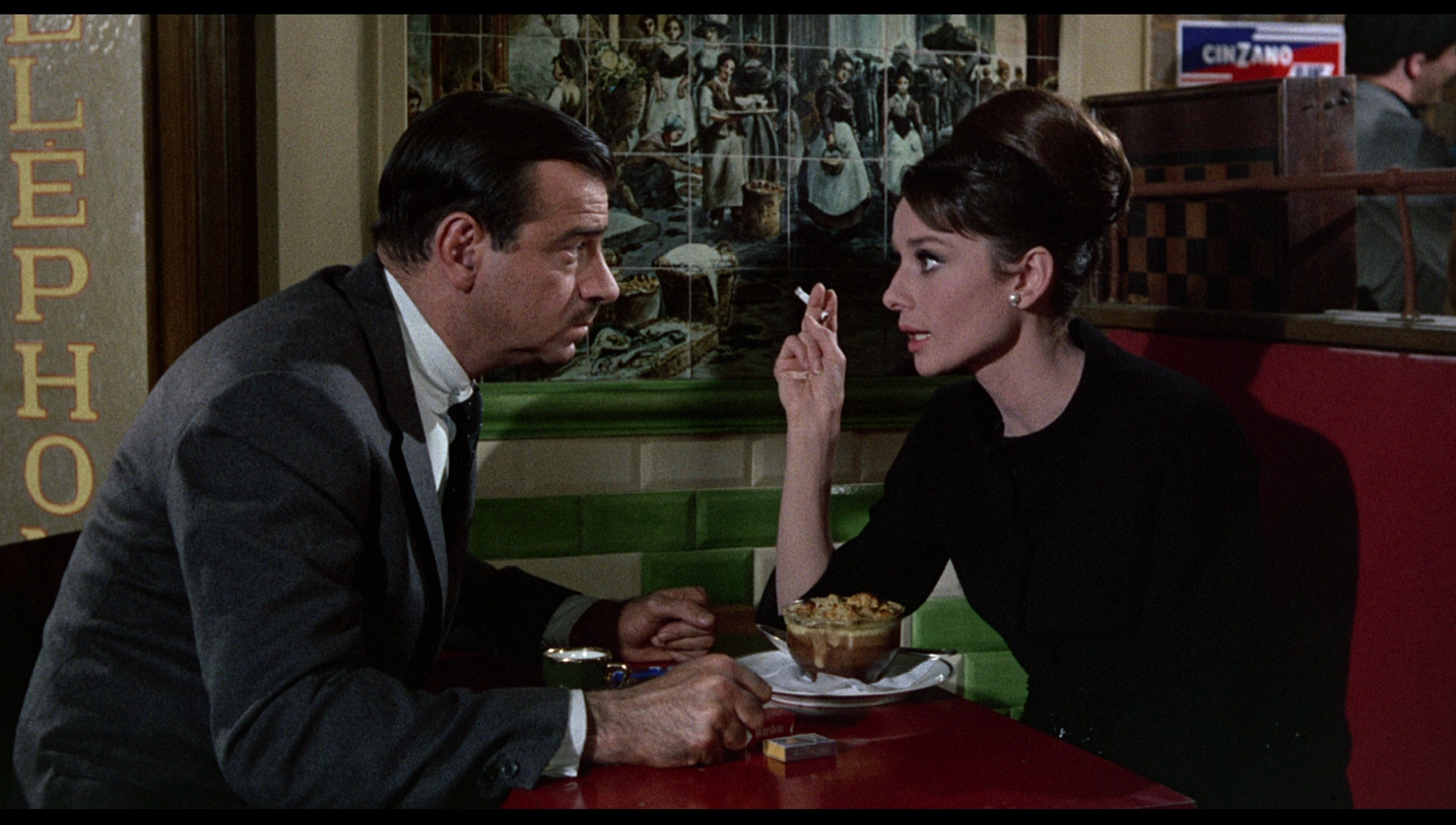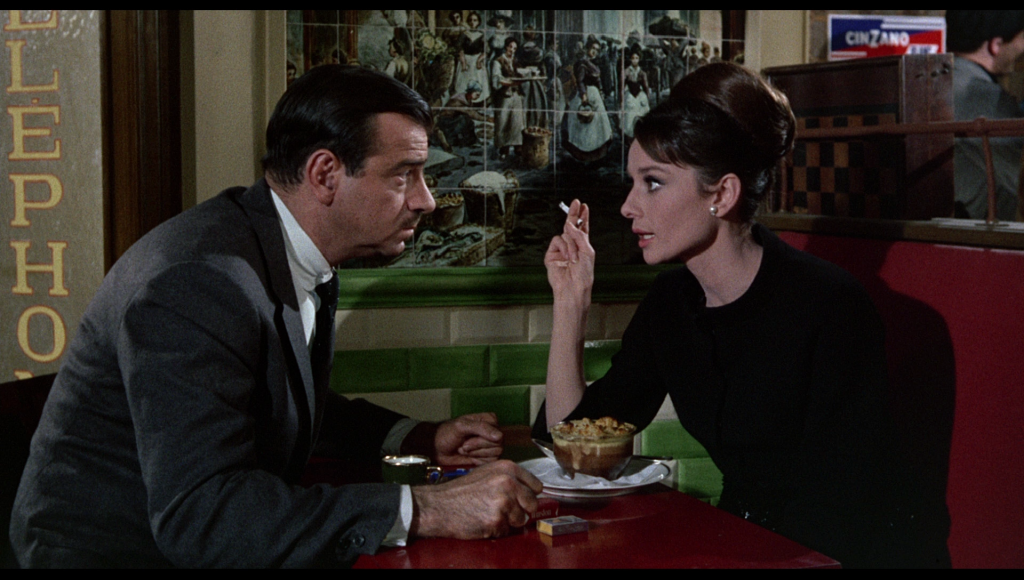By Rachel Tait (Contributor) – Email
In the year 1963, Universal released Charade, a smash hit, roller-coaster thriller. An Alfred Hitchcock-inspired suspense story about a woman named Regina Lampert (played by Audrey Hepburn) who comes home from a vacation in the Alps to find her apartment empty and her husband, whom she was going to divorce, dead — “thrown off a train like third-class mail.” Prior to this she meets the mysterious Peter Joshua on holiday, (played by Cary Grant), who is the only one she can trust — or can she? Aided by a French detective and the pleasantly knowledgeable Mr. Bartholomew (Walter Matthau), a CIA administrator, Regina finds herself in a web of deceit, as Joshua is found out to be lying about who he is.
A group of three dangerous men begin pursuit, the net tightens, no one is who they say they are, and one thing is certain: the clock is ticking and people are desperate.
The casting is superb in this classic film: Audrey Hepburn innocent and expressive, with well-timed humour and charm; Cary Grant playing “Cary Grant,” the sturdy protector, the tough, romantic hero; and Walter Matthau, bringing a sinister presence behind a false identity.
In particular, the verbal sparring and cleverly written dialogue by Peter Stone (also the screenwriter of the Hitchcock-influenced Mirage and the original Taking of Pelham One Two Three) helped establish the personalities of the characters.
In 2002, director Jonathan Demme, following the production of his adaptation of Toni Morrison’s Beloved, decided to take on an experiment: remake a classic (not unlike Gus Van Sant’s remake of Hitchcock’s Psycho a few years previous. Casting Thandie Newton and Mark Wahlberg in the Hepburn/Grant roles, ***The Truth About Charlie revolves around the same premise, however, it is its own different film.
The influence of the 40 years separating the original and remake is the most noticeable of the changes, as more modern elements are incorporated into the movie. The pace of Charade is a lot slower than its remake, and it is also more romantic, balancing the spy seriousness with light humour and fun. In The Truth About Charlie, the sequences and scenes are much more intense, fast-paced, with a dark presence hovering over the characters. The audience knows something bad is going to start happening as the search begins to unfold.
A very brilliant strategy used in both films is the use of images going around in circles. In Charade, the opening credit sequence by Maurice Binder, who would go on to do the credits sequences for 14 James Bond movies, beginning with Dr. No, uses psychedelic spirals, wheels, and mazes — simple images that convey the idea of going around in circles and getting nowhere, which is what happens to most of the characters in the movie. In the remake, Demme uses 360-degree camera pans to tip the audience off that all is not as it seems and to hint that a character is lying or deceiving Newton’s Regina Lampert.
Casting-wise, Newton brings a more foxy appeal to the updated version, while still keeps the innocent vulnerability that draws in Wahlberg’s character. Some of the characters were drastically changed to put a new twist on the story, with Wahlberg much more expressive (rather than debonair) in his expressions
There’s also the villains: Matthau’s portrayal is more cold-blooded and vengeful than Tim Robbins’ in The Truth About Charlie, who is a tragic war hero, not necessarily out to kill anyone. This is significant, because it really does give off a new feel in the remake. You learn to be afraid of Matthau in Charade, but in The Truth About Charlie, you might feel compassion for Robbins, betrayed, and almost justified in the end.
The object of desire, the endgame of the pursuit, remains the same: a very rare and valuable stamp, one worth millions.
With these two films, each is unique in its renditions and interpretations of the source, a story by Stone, however, Charade will always be the showstopper.



